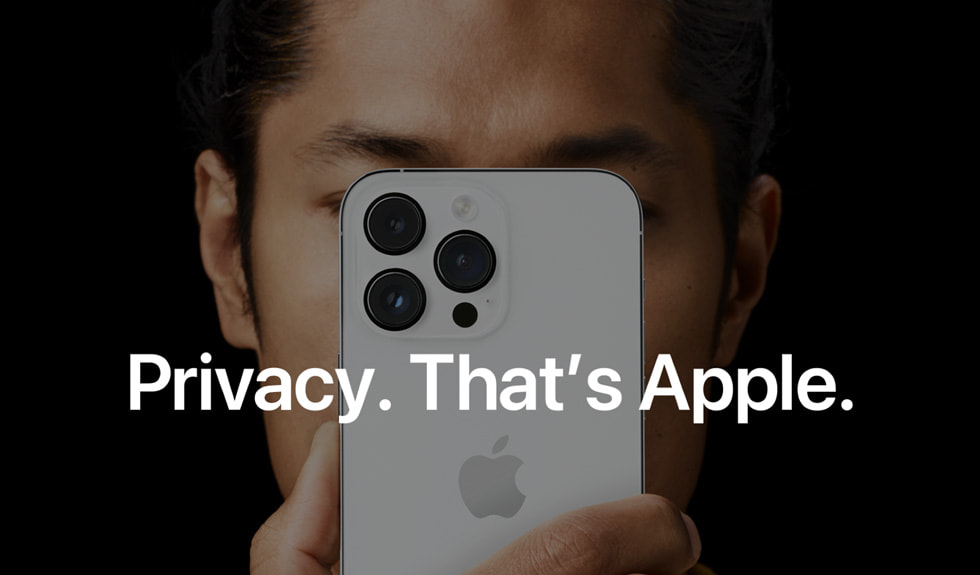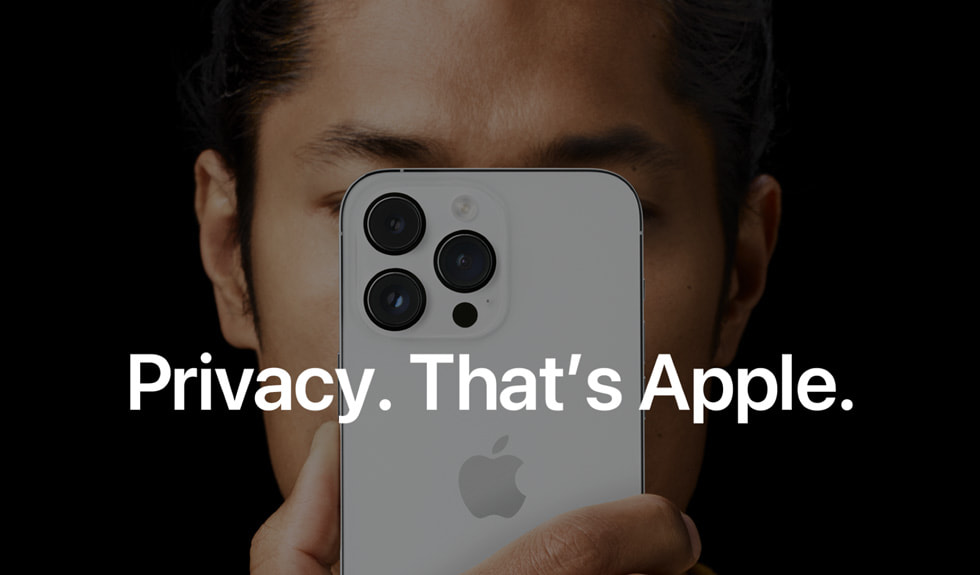Apple and Privacy: Setting the Standard for Data Protection
In today’s digital world, where data breaches and privacy concerns are common, Apple stands as a champion of privacy. Known for its commitment to protecting users’ personal information, Apple has implemented several initiatives that set the standard for privacy in the tech industry. From advanced encryption to user control over data, Apple ensures that its products and services offer the highest levels of security and transparency.
In this article, we will explore how Apple is redefining privacy in the digital age and why it is considered one of the leaders in data protection.

Apple’s commitment to privacy is evident in its transparent data policies and enhanced security features.
1. Apple’s Approach to Privacy
Apple has always maintained that privacy is a fundamental human right, and it strives to build this principle into every aspect of its products and services. With the increasing number of data breaches and scandals in the tech industry, Apple is taking a strong stance on data protection. The company has made privacy a cornerstone of its ecosystem, ensuring that users have control over their data.
Privacy as a Design Principle
Privacy at Apple is not just about legal compliance but also about integrating privacy into the design of products from the ground up. Apple’s privacy features are embedded into both hardware and software, making privacy a default, not an afterthought.
- End-to-End Encryption: One of the key ways Apple protects user data is by implementing end-to-end encryption. This means that data is encrypted on the device and can only be decrypted by the user. For example, iMessages and FaceTime calls are encrypted, ensuring that only the intended recipient can read or listen to the communication.
-
Data Minimization: Apple practices data minimization, which means it collects as little user data as possible to provide services. Even when data is collected, it is anonymized or aggregated to protect user identities.
-
On-Device Processing: Many of Apple’s features, such as Siri and Photos, rely on on-device processing to reduce the amount of data sent to Apple’s servers. This ensures that sensitive data stays on the device and is not shared unnecessarily.
2. Apple’s Privacy Policies: Transparency and Control
Apple takes pride in being transparent about its data collection practices. Users are always informed about what data is being collected and how it is used. Apple offers robust privacy settings and options that give users full control over their personal information.
Privacy Labels on the App Store
To ensure users are fully informed, Apple introduced privacy labels on the App Store. These labels provide clear information about how an app collects and uses data. Users can see at a glance if an app is collecting location data, contact information, health data, or other personal details.
- Data Disclosure: App developers are required to disclose what data is being collected, whether it’s used for tracking, and whether it is linked to the user’s identity.
-
User Consent: Apps must obtain explicit user consent before accessing certain types of sensitive data, such as location, contacts, or photos.
-
Privacy Practices: The App Store privacy labels also outline the privacy practices of developers, helping users make informed decisions about the apps they download.
Privacy Settings on Apple Devices
Apple provides users with comprehensive privacy settings on all their devices. These settings allow users to control:
- Location Services: Users can manage which apps have access to their location data. You can also choose to share your location with only trusted apps and services.
- App Tracking Transparency: With App Tracking Transparency, Apple requires apps to ask for permission before tracking users across other apps and websites for targeted advertising.
- Data Sharing: Apple allows users to control how much data they share with third-party apps and websites. You can disable tracking cookies and restrict apps from accessing your contacts, photos, and other sensitive data.
3. Privacy Features in Apple Services
Apple’s privacy-centric approach extends to its suite of services, including iCloud, Apple Music, Apple Pay, and more. Each service is designed with privacy in mind, offering features that keep users’ data secure and under their control.
iCloud and Data Encryption
iCloud is Apple’s cloud storage service, and Apple takes great care to protect the data stored in iCloud. Data stored in iCloud is encrypted both in transit and on the server, meaning only the user can access their data with their Apple ID credentials. Apple also offers two-factor authentication for iCloud to enhance security.
- End-to-End Encryption for iCloud: Certain types of data, like iMessages and health data, are stored in iCloud with end-to-end encryption, ensuring only the user has access to this information.
Apple Pay and Financial Privacy
Apple Pay is a secure and private way to make payments using your Apple device. Unlike traditional payment methods, Apple Pay does not store your credit card information on your device or in the cloud. Instead, it uses tokenization to create a unique transaction code for each purchase, ensuring that your financial information remains private.
- No Tracking of Transactions: Apple does not track your transactions when using Apple Pay, preserving your financial privacy. Apple Pay transactions are processed without revealing your card details to the retailer.
4. Apple’s Commitment to Data Privacy Regulations
Apple is committed to adhering to data privacy laws and regulations, such as the General Data Protection Regulation (GDPR) in Europe and California Consumer Privacy Act (CCPA) in the U.S. These regulations protect consumer rights and provide transparency regarding how companies handle personal data.
GDPR Compliance
Under the GDPR, Apple is required to inform users about their data rights, including the ability to access, delete, or transfer their data. Apple’s user-friendly privacy settings make it easy for European users to manage their data in compliance with GDPR.
- Right to be Forgotten: If a user wishes to delete their Apple ID or iCloud account, Apple makes it easy to delete personal data associated with that account.
CCPA Compliance
Apple also complies with the CCPA, which gives California residents the right to request details about the personal data Apple collects, and the ability to delete their data or opt out of the sale of personal information. Apple’s privacy settings enable users to manage their data preferences and opt-out of certain data-sharing activities.
5. The Future of Privacy at Apple
Apple continues to innovate in the realm of privacy, with a focus on giving users even more control over their data. The company is constantly introducing new features to enhance privacy and security. Apple’s Privacy Nutrition Labels, App Tracking Transparency, and privacy-focused software updates demonstrate that privacy is an integral part of their ongoing efforts.
Privacy Innovations Coming Soon
As part of its commitment to privacy, Apple is likely to continue rolling out new privacy features across its products and services. Some of the anticipated privacy innovations include:
- Improved App Tracking Transparency: Apple may enhance the tracking transparency feature, giving users even more granular control over what data is shared with apps.
- Advanced Privacy Settings: Expect to see even more advanced privacy settings and customizable options that allow users to fine-tune their experience and control the data they share.
- Continued Push for Privacy by Default: Apple is likely to maintain its push toward privacy by design, ensuring that every new feature, update, and product release respects users’ privacy rights.
FAQs About Apple and Privacy
1. Does Apple sell my data?
No, Apple does not sell your personal data. In fact, Apple has built its business around protecting user privacy, and it does not rely on user data for advertising revenue like some other tech companies.
2. What is Apple’s stance on third-party app tracking?
Apple offers a feature called App Tracking Transparency, which requires apps to ask for permission before tracking users across other apps and websites for advertising purposes. You can choose to deny tracking on a per-app basis.
3. How does Apple protect my data on iCloud?
Apple uses end-to-end encryption to protect data stored on iCloud, ensuring that only the user can access their information. Apple also offers two-factor authentication for added security.
4. Can I control what data Apple collects?
Yes, Apple provides users with detailed privacy settings that allow you to control what data is shared with Apple and third-party apps. You can disable location tracking, data sharing, and control other privacy preferences.
5. Is Apple’s privacy policy compliant with GDPR?
Yes, Apple complies with the GDPR and ensures that European users have access to their data rights, including the ability to access, delete, or transfer their personal data.
Conclusion: Apple’s Privacy Legacy
Apple has long been a leader in privacy protection, and its continued innovation in this area ensures that users’ personal information remains secure and under their control. With its focus on data encryption, user transparency, and privacy-first design, Apple has set a high bar for the tech industry. As privacy concerns continue to grow, Apple’s commitment to user rights will only strengthen its reputation as a privacy champion.
For more information on Apple’s privacy policies and initiatives, visit Apple Privacy.

Apple is leading the way in prioritizing user privacy and setting a new standard for the tech industry.

